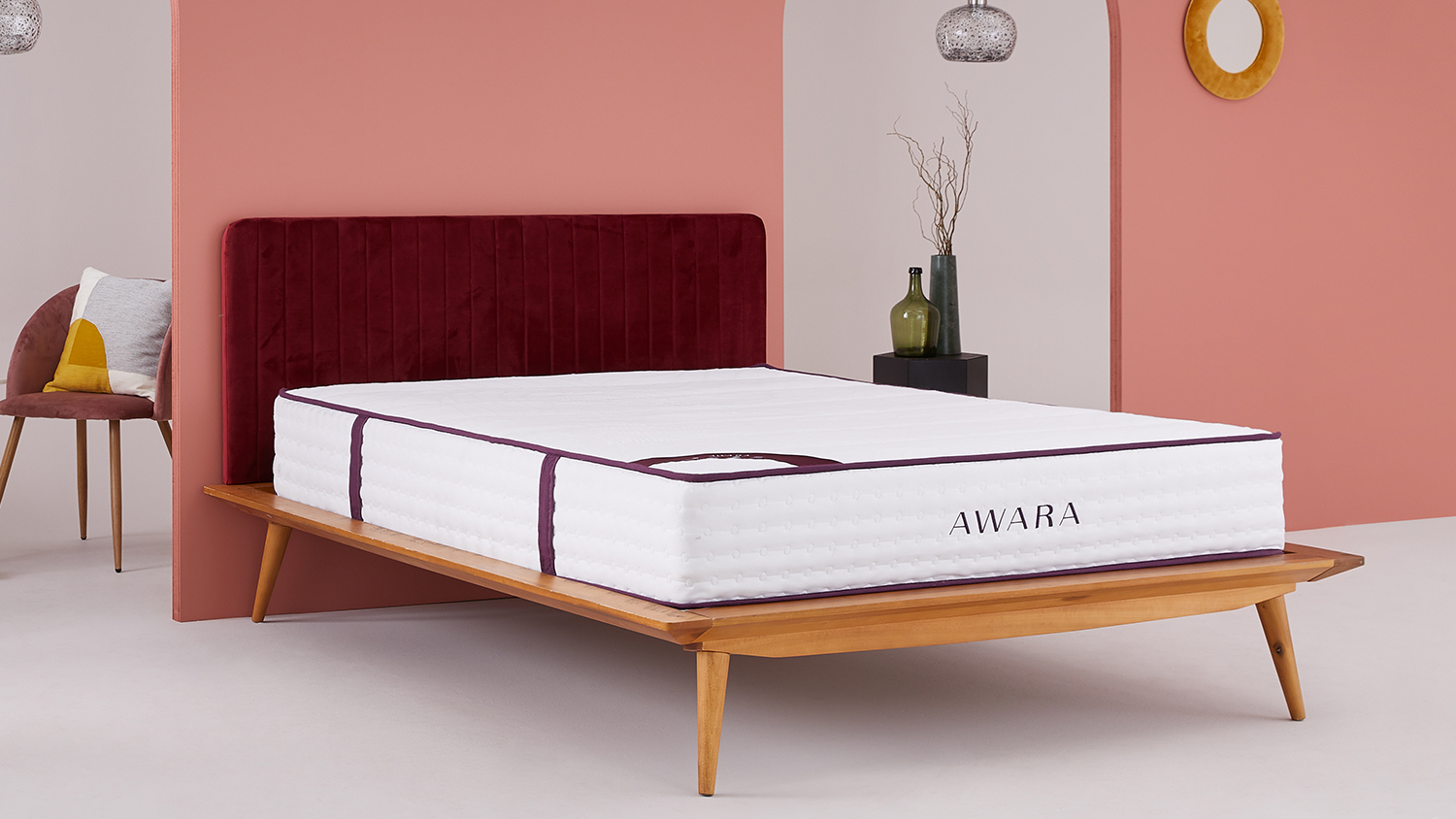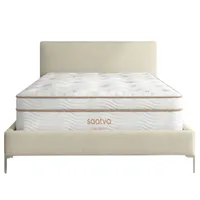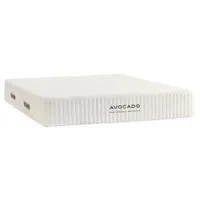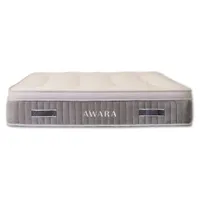Can you buy a mattress that's naturally resistant to common allergens? Yes —here’s what to look for
Here's what to look for when buying a hypoallergenic mattress

Bedrooms are filled with common allergens that can affect your sleep, from dust mites to mold and mildew. Allergy triggers tend to worsen during spring months, but there are mattresses available that prevent these allergens from ruining your rest.
Fortunately, some of the best mattresses feature allergy-resistant materials, such as latex and memory foam, that help dispel bedroom irritants. Here, we’ll show you what materials, treatments, and designs to look for in order to prevent your mattress from becoming a hotbed of allergens.
While spring may be allergy season, it's also a good time to catch a mattress deal as the Memorial Day mattress sales in late May fast approach. So if you're planning to find a discount on an anti-allergy mattress, here's what to look out for.
What are the most common allergens that affect sleep?
The bedroom is full of allergy triggers (or allergens), including dust, dust mites, mold, and pet dander. Dust mites are common in mattresses as they feast on our dead, shed skin cells (we all shed nearly half a teaspoon of dead skin every night when we’re in bed) and thrive in dark, humid environments.
Mattress mold can also spread through mattresses if moisture from any spills or accidents are left untreated or the bedroom is too humid. If you allow your pet to share your bed, animal dander can build up in your bedroom and trigger allergies.
- Dust mites
- Pollen
- Pet dander
- Mold and mildew
- Fiberglass flame retardants
How common allergens affect sleep quality
Swollen nasal cavities, which can lead to snoring, sneezing and coughing, are strong indicators that there are allergens present in your bed, and that you are allergic to them. Allergens are not only irritating, but they can also affect your sleep.
However, in addition to common allergy symptoms that make it difficult to fall an stay asleep, allergies can also affect your health. According to the American Lung Association, dust mites can even trigger asthma attacks, while the CDC says that mold exposure can lead to a stuffy nose, wheezing or itchy eyes and skin and can even worsen existing respiratory issues.
Get instant access to breaking news, the hottest reviews, great deals and helpful tips.
What is a hypoallergenic mattress and how does it help resist allergens?
A non-allergenic (or hypoallergenic) mattress is a bed that is resistant to allergens such as dust, dust mites, and mold. A lot of hypoallergenic materials are sustainable and non-toxic, so they're often found in the best organic mattress. Other names for non-allergenic mattresses are anti-allergy or allergy-free beds. If you're interested in investing in an organic bed, check out our guide to understanding green-washing in the organic mattress market.
However, just because a bed is labelled 'hypoallergenic', this doesn't mean it won't trigger any allergic reaction. Latex, for example, is hypoallergenic as it's dust-mite and mold resistant, but it will still trigger an allergy if you're allergic to latex itself.
HOW TO CHOOSE A MATTRESS THAT's NATURALLY resistant to common allergens
There are mattresses available that are naturally resistant to common allergens. These are the key features to look for:
1. Infused memory foam
The best memory foam mattresses not only offer body-cradling comfort and cushioning pressure relief, they are also resistant to dust mites. This is because the space-age memory foam's structure is hard for dust mites to penetrate Memory foam is particularly great option if you're on a tight budget, as memory foam features in some of the best cheap mattresses on the market.
2. Fiberglass-free flame barrier
The presence of fiberglass in some mattresses is another potential allergy trigger. The controversial material is often featured in cheaper beds as it's a coste-effective fire retardant for protecting flammable mattresses - but are only present inside the mattress. If the cover of a mattress is removed or broken and it isn't fiberglass free, then this can expose you to the potentially harmful, allergy-triggering material. Organic beds, such as the Avocado Eco Organic Mattress, are fiberglass-free mattresses and use natural flame barriers such as organic wool. Look for a mattress that proudly states that its flame barrier is fiberglass free.
3. Natural Latex

If you've been searching online for a hypoallergenic mattress, odds are you've come across a lot of latex beds. Natural latex mattresses are not only naturally cooling and breathable, but they are also non-allergenic and anti-microbial, meaning it's resistant to dust mites, mold, and mildew. While they tend to be on the expensive side, latex mattress can be affordable, such as the Awara Natural Hybrid Mattress. What's more, if you look after a latex mattress, it will likely last longer than a non-latex mattress.
4. Antimicrobial treatment
An antimicrobial treatment is when a mattresses' cover is treated with a antimicrobial agent, which inhibits the growth of microorganisms such as dust mites and mold. The Saatva Classic mattress, for example, is treated with the luxury mattress brand's trademark Guardin, an antimicrobial treatment to make its cover non-allergenic.

5. Cooling gel
Many of the best cooling mattresses are infused with cooling gel, such as copper gel and graphite gel, which naturally draws away body heat and keeps the mattress cool. However, gel infusions not only keep the mattress cool and dry to prevent the growth of allergens that thrive in warm, humid environments, but they also have antimicrobial properties. Graohite and copper, for example, can naturally inhibit the growth of bacteria and allergens.
Top 3 hypoallergenic mattress to shop today
Saatva Latex Hybrid: from $1,495 $1,295 at Saatva
The Latex Hybrid not only uses naturally allergen-resistant Talalay latex, but its cover is also treated with Saatva's trademarked antimicrobial treatment to inhibit mold, mildew, and dust mites. The latest Saatva deal knocks up to $300 off this month, with a queen reduced to $1,895 (was $2,195), which isn't the cheapest we've seen it. You'll also get free old mattress removal, a year's sleep trial, and a lifetime warranty.
Avocado Eco Organic Mattress: from $699 at Avocado Green
Made with certified organic latex, wool, and cotton, this fiberglass-free bed is non-allergenic. While there's currently no Avocado mattress deal on this model, it's still America's cheapest organic mattress, with a queen relatively cheap at $1,299. You'll also get a 100-night trial, free shipping and a 10-year warranty.
Awara Natural Hybrid mattress: from $1,299 $649 at Awara Sleep
This natural bed contains natural latex, organic wool, and organic cotton for a clean, non-toxic sleep. Awara Sleep runs monthly mattress sales so you'll never have to pay full MSRP for the Natural Hybrid. Ahead of Memorial , you can buy a queen size Awara Natural Hybrid for $949 (was $1,699), which is a huge saving on a top-rated natural hybrid.

Frances Daniels is a PPA-accredited journalist and Sleep Staff Writer at Tom's Guide with an MA in Magazine Journalism from Cardiff University. Her role includes covering mattress and sleep news and writing sleep product reviews and buyer's guides, including our Best Hybrid Mattress 2025 guide. She is interested in the relationship between sleep and health, interviewing an array of experts to create in-depth articles about topics such as nutrition, sleep disorders, sleep hygiene, and mattress care. She is also our specialist on mattress toppers — producing bed topper reviews and taking care of our Best Mattress Toppers 2025 guide — and leads content relating to fiberglass-free beds for a non-toxic sleep. Outside of Tom's Guide, she has written for Ideal Home and Marie Claire.
 Club Benefits
Club Benefits








